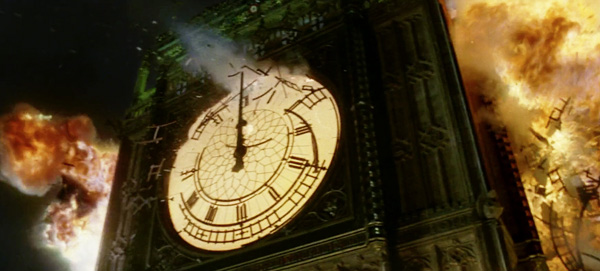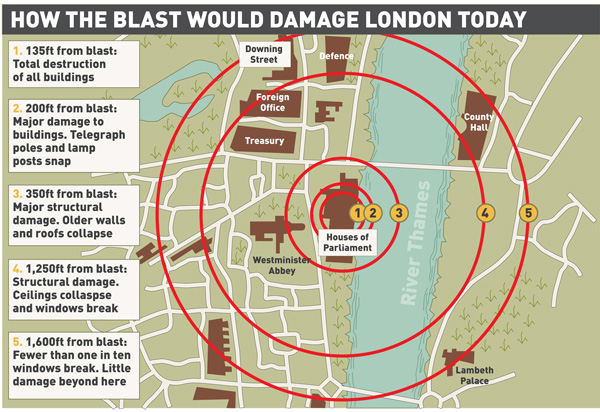What if Guy Fawkes had pulled it off?
05/11/2013
November 5th is known in the UK as Guy Fawkes Night. Across the country, firework displays take place to commemorate the failed plot in 1605 to blow up the Houses of Parliament. Scott Snowden looks at how history might have changed if he’d succeeded
Sometimes called Bonfire Night or Firework Night, the November 5th celebration originates from the failed Gunpowder Plot of 1605, which was a conspiracy by a group of provincial English Catholics to assassinate the Protestant King James 1st of England and replace him with a Catholic head of state. The attempt was led by Robert Catesby and involved placing 5,500lb of gunpowder in barrels under the Houses of Parliament. Fawkes, who had 10 years of military experience, was given charge of the explosives.
The plot was in fact revealed in an anonymous letter sent to Lord William Parker just 10 days before and during a search of the cellars just after midnight on November 5th, Fawkes was discovered preparing the 36 barrels of gunpowder, enough to reduce the House of Lords to rubble. Most of the conspirators fled from London as they learned of the plot’s discovery, some were shot and killed as they raced north and the rest were eventually caught. Eight of the survivors, including Fawkes, were convicted and sentenced to be hanged, drawn and quartered.
However, an analysis by physicists shows that if Fawkes had not been caught, a significant amount of Central London would also have been devastated. Experts from the Centre for Explosion Studies, at the University of Wales, used modern mathematical methods to determine that buildings over 500 yards away would have sustained severe damage. The explosion would have destroyed Westminster Abbey and wrecked buildings as far away as Whitehall.
The death toll would have been catastrophic. Westminster was a ramshackle complex of pubs, houses and brothels crammed together and all in very close proximity to the centre of government. Those nearby who escaped death or injury in the blast would probably have perished in the resulting inferno.

Dr Geraint Thomas, who led the research, said that the 5,500lb of gunpowder Guy Fawkes was found with would be roughly equivalent to the same amount of TNT today. He said the physicists used the weight of explosive to work out how it would affect its surroundings.
“If Guy Fawkes was an expert in explosives, knew what he was doing and had the gunpowder confined in barrels and well-packed, it could have been almost as powerful as the equivalent TNT explosion, so this is a fairly good model,” he said.
“We know that the more explosive we have the more energy will be released when the charge is set off. From the pressure pulse generated by the explosion we can tell if windows are going to be smashed or if whole buildings will be demolished.”
So how would events have changed had Fawkes been successful?
“The conspirators hadn’t really thought through what was going to happen after the plot had it been successful,” says Professor James Sharpe from the Department of History at the University of York. “The leading conspirator, Robert Catesby, was killed in a shoot-out with government forces, so sadly we don’t have his testimony on record.”
However, the plot would certainly have had an impact on the political landscape of all of Europe and there would have been a power vacuum at the centre of English government as King James, his direct heir, Parliament and most of the Protestant aristocracy all went sky-high. The king’s younger son, Charles, would have acceded to the throne at a much younger age then he actually did. Such a brutal attack would have fuelled pro-Protestant and anti-Catholic feeling at a time when those faithful to Rome were already persecuted.
Consequently, Catholic powers would have been encouraged in the immediate aftermath of the Plot to make military and diplomatic interventions on behalf of England’s new Catholic regime.
“If these assumptions are correct, and if all had gone smoothly, the chances are that England would have returned to the Catholic fold and become enmeshed in an alliance with either France or Spain.”
But Professor Sharpe doubts the conspirators’ hoped-for regime change would have lasted. “There would’ve more than likely been a backlash of some sort in 10 or even 15 years, as we’ve seen throughout history that such a forceful takeover is eventually undermined.”
This article appeared in the Orange County Register, November 3rd, 2013
